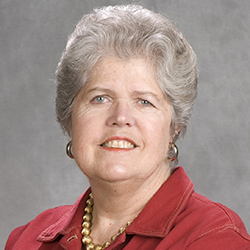
BY EMILY GILL
In a June column in the PJS, George Will objected to progressives’ goal of equity, which he interprets as governmental efforts to improve the conditions of favored groups. He argued that “merit” is the antonym of “equity.” He agreed when philosopher Michael Sandel stated that “the meritocratic emphasis on effort and hard work seeks to vindicate the idea that, under the right conditions, we are responsible for our success and thus capable of freedom.” Will feared, however, that government allocation of social rewards in pursuit of equity produces a “retreat from meritocracy toward, inevitably, government-engineered mediocrity.”
Will ignored, however, Sandel’s qualification that under the right conditions we are responsible for our success and that the cream will inevitably rise to the top. Way too many individuals do not live under those right conditions.
This point is indirectly made in a July column in the New York Times by Samuel Getachew. He wrote about Ahmed Muhammad, like him a teenager from Oakland, CA, who was widely celebrated as the first Black male valedictorian in Oakland Technical High School’s 106-year history. For both Getachew and Muhammad, as well as for an earlier exceptional graduate, Akintunde Ahmad, however, the emphasis should be not upon their own exceptionalism, but rather upon what enabled them to thrive that was unavailable to others. An OTHS discussion-based humanities program valuable to all three men enrolled few Black students, for example, and the lack of diversity discouraged others from enrolling. Ahmad’s bright older brother ended up incarcerated. Instead of focusing on his own exceptionalism, Ahmad suggested that we should be asking what trap lured his brother. Getachew concluded that “these heartwarming stories are a distraction from the reality of our education system.”
Individuals do not create solely on their own the conditions that enable them to thrive or fail. As Washington Post columnist Michael Gerson wrote in a June column in the PJS, although he grew up in a middle-class neighborhood and suburb in the Midwest, “Only later did I begin to see that my normality was actually a social construction,” the result of white flight and systems “created to keep certain communities safe, orderly and pale.” He recognized, in other words, that systemic racism is a real thing. Inequalities are baked into the system so that the merit or cream that rises to the top is not what would rise under conditions of equity.
It is common to hear people say such things as, “My ancestors never owned slaves,” or “My family did not arrive in the U.S. until the twentieth century,” or “My family and I never mistreated a Black person.” Isabel Wilkerson, however, in Caste: The Origins of Our Discontents, presents an arresting metaphor. The United States is an old house, with a welt in the ceiling plaster despite a new roof and perhaps some cracks in the foundation. We have inherited the house with its varied infirmities, although we were not present when they occurred and did not cause them. They will not fix themselves. “And any further deterioration is, in fact, on our hands.” We can put buckets under leaks and avoid the rotting stair tread until what was unacceptable merely is inconvenient. “The unthinkable becomes normal” and the way things are supposed to be. We have a choice as to whether to repair the house. What will the choice be?
Emily Gill is Caterpillar Professor of Political Science Emerita, Bradley University.
